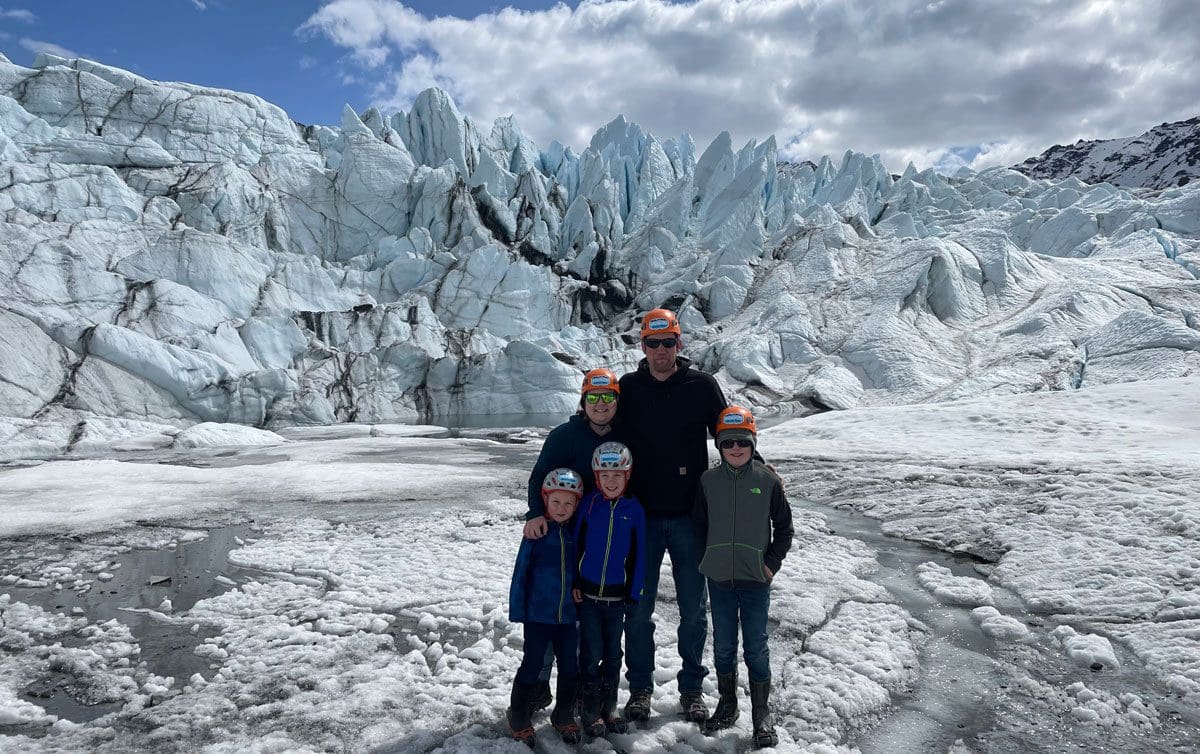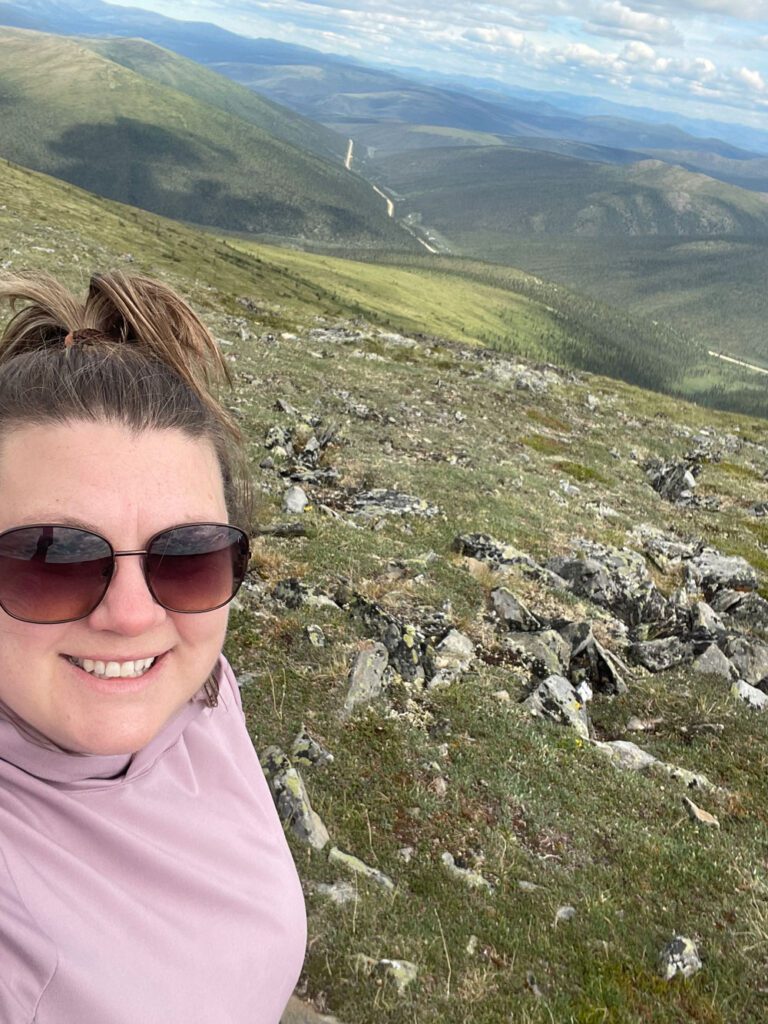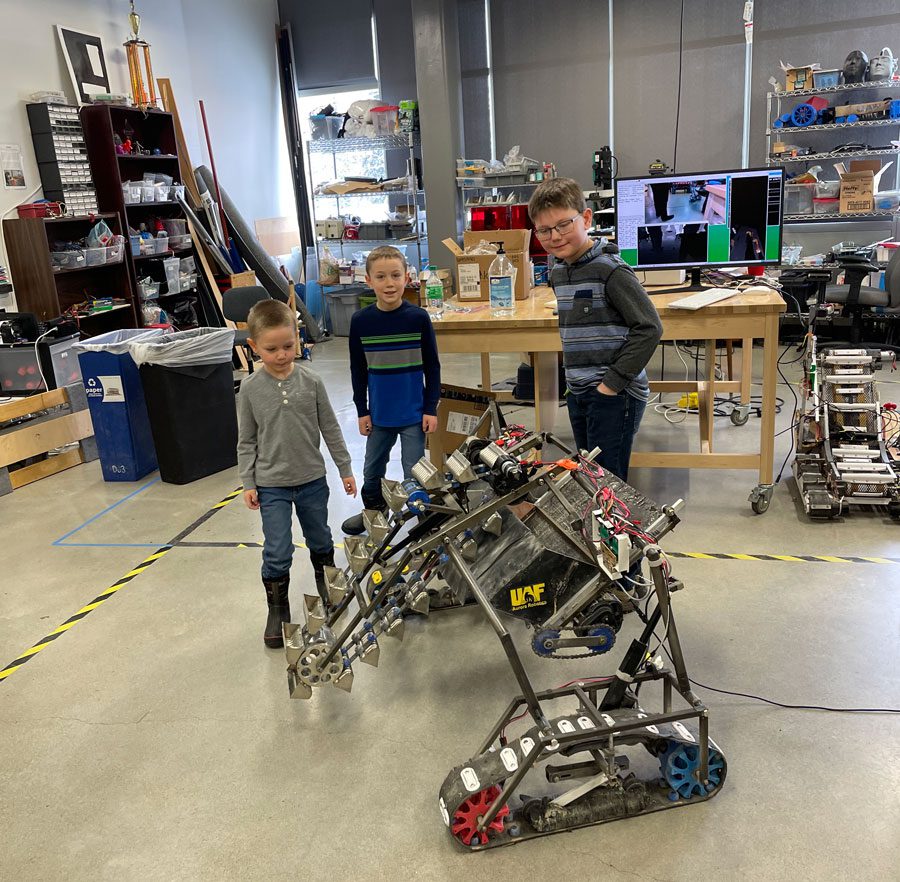MSIS Student Navigates Alaska, Homeschooling, and Online School

After she has spent the morning homeschooling her three sons in Alaska, Becky Wright settles into her chair to begin her own classes.
Wright is pursuing her Research and Data Management Certificate as part of the Master of Science in Information Sciences (MSIS) program at the University of Tennessee, Knoxville.
Given the time difference, her classes take place early in the afternoon while her boys are doing independent activities at their home. Occasionally, her oldest son will sit alongside Wright because he is interested in what she is learning.
Being able to balance being a mom with being a student has been a major benefit of enrolling in the School of Information Sciences’ (SIS) online program. Wright has already completed two semesters and is on track to graduate in the spring 2024.
Being able to balance being a mom with being a student has been a major benefit of enrolling in the School of Information Sciences’ (SIS) online program. Wright has already completed two semesters and is on track to graduate in the spring 2024.

“We absolutely value education in this home and lifelong learning is something I definitely wanted to model for my boys,” said Wright, whose sons are ages 10, 8, and 5. “I hope this can set an example for them and show them that growth is possible.”
Wright obtained her bachelor’s degree in English literature from Mansfield University of Pennsylvania in 2011. Her family relocated to Alaska for her husband’s job, and settled about 40 minutes north of Fairbanks.
Wright, 36, is eager to get back into the workforce as her children get older. She is interested in the science field, especially geographic information, and saw the MSIS program as a way to help begin the process.
“I wanted to find a way to get my foot in the door,” Wright said. “There are a lot of scientific discoveries happening in Alaska, with all kinds of climate change research and amazing stuff that people in the lower 48 states don’t know about because we are so far away. I would love to be a part of any sort of research-based entity that is providing cool science outputs.”
Wright’s faculty advisor, SIS Professor Wade Bishop, has enjoyed watching Wright expand her skill set and be willing to embrace new challenges in the program.
“Becky is doing great. She is an amazing mother, especially taking the next step of homeschooling up there in the wilderness and having her own library and curriculum,” he said. “It’s been really impressive how she has managed to handle it all.”
Given the program is fully online, Wright figured she may not get much individual attention if she needed help. But any time she’s reached out, Bishop has been available.
“Working with Wade has been fantastic. He has been a really proactive advisor,” Wright said. “I am always thinking I am behind the curve working with so many amazing students and people who have fantastic careers and are really doing awesome research and incredible work. But he has been so encouraging and supportive and willing to help guide me along and connect with me.”
Although she was interested in science growing up, Wright never saw a viable path to enter the field. She felt hindered by certain stereotypes that have existed in science, technology, engineering, and math (STEM).

“I think in just a really small town there was a mindset of girls do this and don’t do this and women are more suited for one thing than another. By the time I graduated, I was so intimidated by the math part of science that I was afraid to pursue it,” she said. “A geography degree from 10-15 years ago would have provided skills that are in such high demand right now. I regret not pursuing something along those lines.”
The MSIS program strives to provide an educational opportunity for a broad range of students and make them feel comfortable in the learning environment.
“I think our school does a good job with having a great sense of community built into a virtual setting,” Bishop said. “We have people from all over in our classes and it gives us all a better worldview. I think it benefits everyone to have a real diversity of location and people involved.”
Wright has been working on a class project about the impact of public libraries in Alaska. Through her research, she discovered many communities are off the road system and don’t have easy access to public libraries.
“The state library system doesn’t even know how many libraries are out there, so I started looking up where the libraries are and what communities have them,” she said. “Based on the fact these communities are not connected by roads, people may need to take a plane, boat, snow machine, or sled dog team, depending on the time of year, to get to a library in another community.”
Because Wright is not a native Alaskan, she feels there is still much to discover about the state, its culture and traditions, and the way things operate.
“Until the day I can get out and visit some of these places, I can never fully understand and probably never will understand as much as people indigenous to Alaska do,” she said. “But I just want to learn as much as I can for as long as I am here to be as much of an agent of change as I can be.”
Wright and her sons frequently take trips to museums, parks, and libraries to help increase their knowledge and learn more about their surroundings. They are doing it together as a family, but also as students.
“I wouldn’t say homeschooling was always my plan, but I felt pretty early on that it would be something I was interested in,” Wright said. “I do enjoy doing all these fun things with my kids and watching them discover new things and develop new interests. That has been really rewarding.”
Written by Rhiannon Potkey
MSIS Student Navigates Alaska, Homeschooling, and Online School written by CCI and originally published on the College of Communication & Information site.